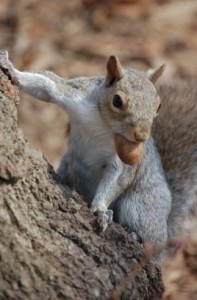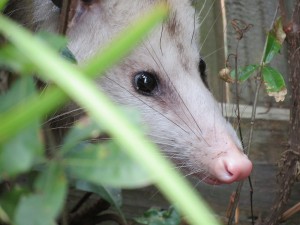Hudson NH Wildlife Removal
(Please call Hudson NH Animal Control for all your domestic animal issues, including dogs and cats at 603-886-6011)
Hudson NH Wildlife Removal • Call 603-425-4250
It is my privilege to provide Hudson NH wildlife removal and wildlife control services for Hudson New Hampshire residents and business owners. I know the danger most people feel when they have indigenous and untamed animals living in their property, having been working in wildlife control for years.
After all, animals like raccoons, squirrels, skunks, moles, muskrats and other species should never be allowed in human dwelling areas, especially in your home. These creatures can cause damages in structure and landscapes and are also carriers of deadly pathogens and diseases. Make sure to know a wildlife removal professional nearby which you can call immediately. Save our Hudson Hillsborough wildlife hotline number in your contact list for easy reference.
Wildlife in Hudson
Hudson’s wildlife diversity exists within the modern growth and economic changes around town. The city lies within the whole stretch of the Merrimack River Watershed and has the Benson Park and Benson Wildlife Animal Farm that draws nature enthusiasts, bikers, walkers and hikers. Occasional wildlife animal intrusions however happened in Hudson residential areas after re-development of the sites, police visibility and free roaming of people.
Hudson NH Wildlife Removal Services
Raccoon Removal in Hudson NH
Here are some facts on raccoons. A raccoon’s carnassials does not have pointed or sharp end which can be seen in most carnivores. They do have wide molars similar to herbivore animals. Raccoon’s have as much as 13 known vocal sounds and calls, 7 of which used by mother and young raccoons for communication with one another. An interesting call that the animal usually make is the twitter bird like sound which the newborn raccoon call to their mother animal.
Beaver Removal in Hudson NH
Beavers are known to be nocturnal and spend most of their waking time in the dark. They can easily swim and highly adaptable in the water, where they can stay submerged from 15-20 minutes. A beaver mostly feel vulnerable from predators when they’re on land, so they go back and forth in the waters from time to time. As a sign of a nearby threat, the beaver will often slap their scaly and flat tail in the water surface.
Flying Squirrel Removal in Hudson NH
Flying squirrels can live up to 6 years out in the wild, while captive flying squirrels (in zoos and conservation areas) can live up to 15 years. The life expectancy of flying squirrels in the forest is usually shorter because of hunting and predators. Some of the most common predators of flying squirrels include coyote, fox, raccoon, fisher, owl, snakes, bobcats and wild cats. We often receive requests to remove flying squirrels in Hudson; you can call one of our phone operators for details.
Call us at 603-425-4250 for inquiries
Our other Hudson NH Wildlife Control Services
Bat Removal and Bat Exclusion
How much do you know about bats? Most species of bats live in a ‘fusion-fission’ type of social structure. The way this works, in ‘fusion’, bats move in large group, often congregating in a single roosting area such as a cave. In ‘fission’, the bats break up, forming and mixing in subgroups of other roosts, with several individual bats switching and transferring roosts, with most bats ending up with new roost mates in another cave or tree.
Squirrel Removal
The social make-up of squirrels varies depending on the species or groups. Tree squirrels are said to be solitary creatures preferring to work and live on themselves. Ground squirrels on the other hand are more social in nature, quite notably living with a large group of ground squirrels.
Skunk Removal
There are many instances of urbanized skunks in Hudson residential areas where it is seen scavenging for food in garbage dumps and trash containers. If skunks can’t find leftover food items, they often eat birds, lizards and rodents. Skunks also eat carcasses of mice or rats which have been left by cats.
Opossum Removal
Here are some facts on opossums. The opossum has one of the remarkable immune system of wildlife animals. It does have immunity to deadly venom from cottonmouths, vipers and even rattle snakes. Possums have been known to be tough, despite their size, being able to survive even against bigger predators in the wild. Only a small percentage of opossums have rabies, about one out of eight hundred possums to some studies. However, despite of this, opossums are still considered as our most frequently reported nuisance wildlife animals in Hudson NH.
Muskrat Removal
The muskrat ranges from 15-28 inches in length and weigh around 1-4 pounds. Their size measures about 4 times of the brown rat. Some Hudson resident’s often interchange muskrat with the beaver. Muskrats however are smaller than beavers. Both however share similar habitat and territory.
Mole Removal
Here are some facts on moles. The name for the underground animal mole was also known as ‘mouldywarp’, which has similar context with the German term (Maulwurf) and other European term with Swedish, Norwegian and Danish origins (mullvad, muldvarp, moldvarpa) which is based from the root word ‘mould’ meaning soil and ‘varpa or vad’ meaning throw. Mouldywarp thus mean ‘one throwing soil’. Later on, the name adapted a shorter name which is mole.
Rat Removal
How much do you know about rats? In some cases, the name ‘rat’ can be used on other small rodents that are not necessarily known as ‘true rats’ (such as the black rat or brown rat). These can include the North American ‘pack rats’, the muskrats and even the kangaroo rats. Such species can be loosely referred as ‘rats’ but they do not belong to the genus ‘Rattus’ which define the ‘true rats’.
Groundhog Removal
The life expectancy of groundhogs usually lasts 3-6 years, with captive groundhogs in zoos or preservation areas lasting from 10-14 years. Groundhogs can fall prey to a number of predators in the wild that include bobcats, wild dogs, coyotes, cougars, foxes, bears, bobcats, hawks and eagles. Most of the time, small young groundhogs easily fall prey to wild cats and snakes, which hang around their burrows. Groundhogs are difficult to remove, call us how to extract the animal successfully?
Bird Removal
The most common problem brought by birds in Hudson is the undomesticated species which leave their droppings and wastes in households and facilities. Continuous forest clearings, expansion, and hunting often cause the displacements of wildlife birds, which lead them in neighborhood and city areas.
In our visits in Hudson, we’re asked about the importance of wildlife removal. Its importance lies on how you want to prevent further damages in your place and on how you want to avoid contact illnesses from various zoonotic pathogens. As soon as we mention about wildlife diseases, people nod in approval and agree on how to make sure the indigenous creature is extracted the soonest. You can contact us in Hudson New Hampshire for questions, pricing and inspections in our number below.
Hudson NH Wildlife Removal
Bestway Wildlife Control
603-425-4250



